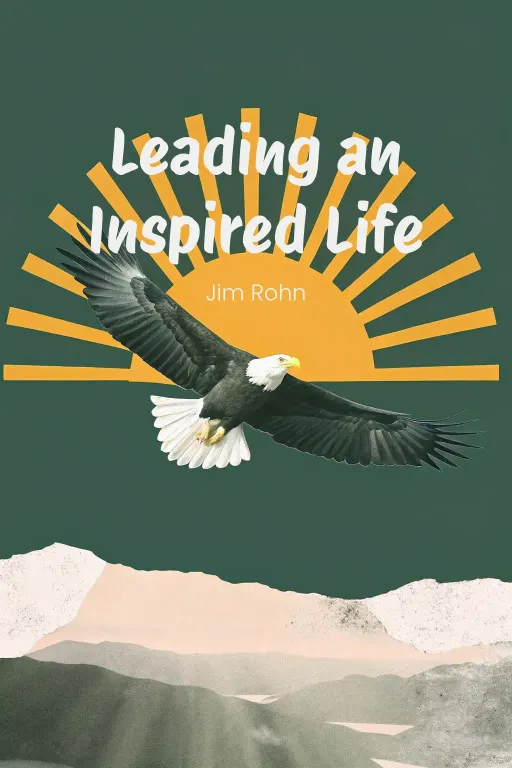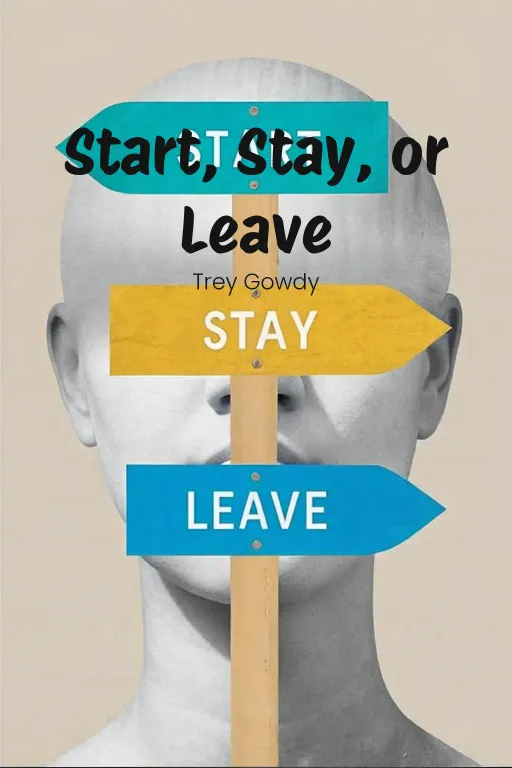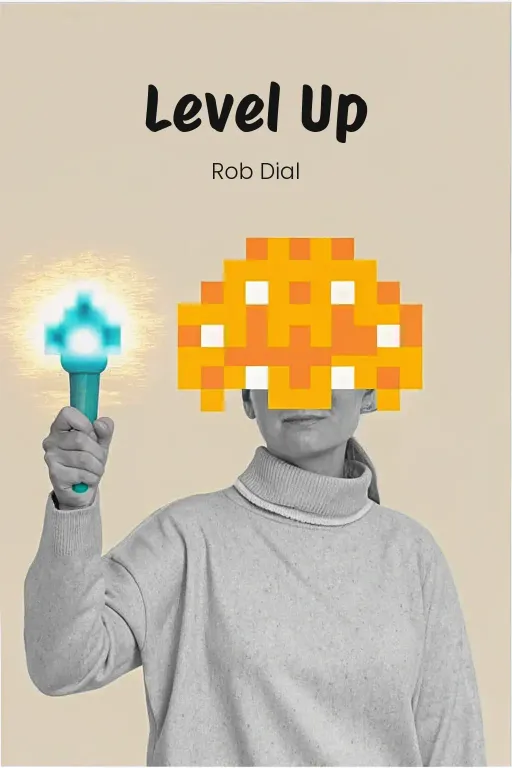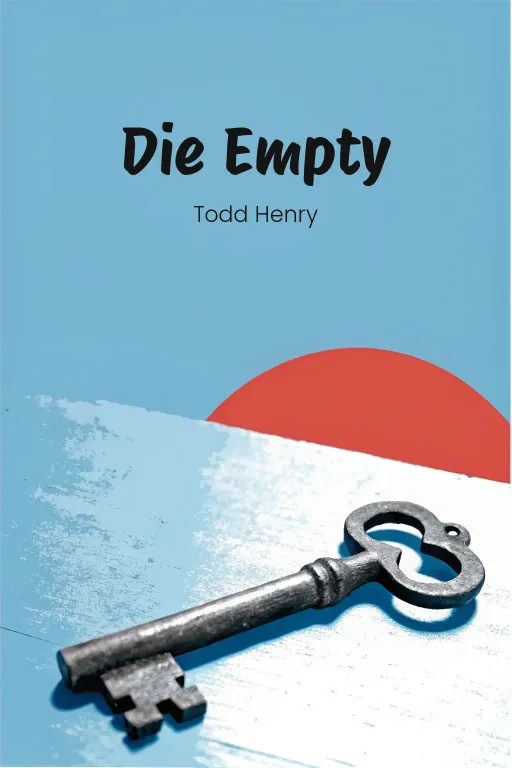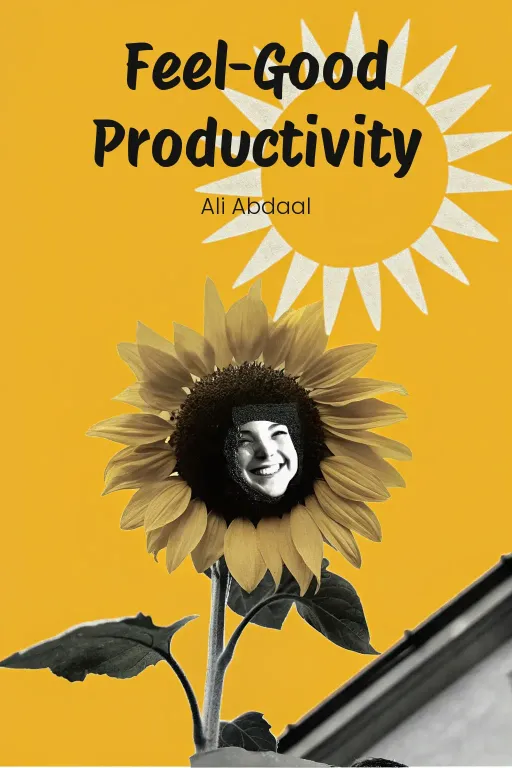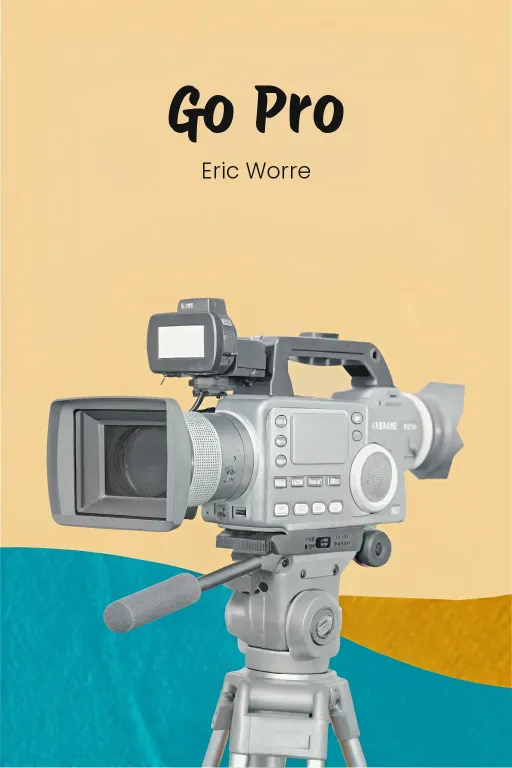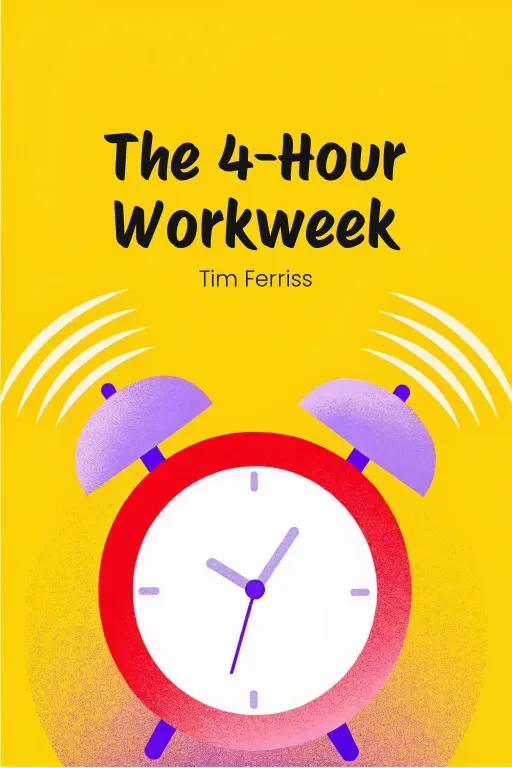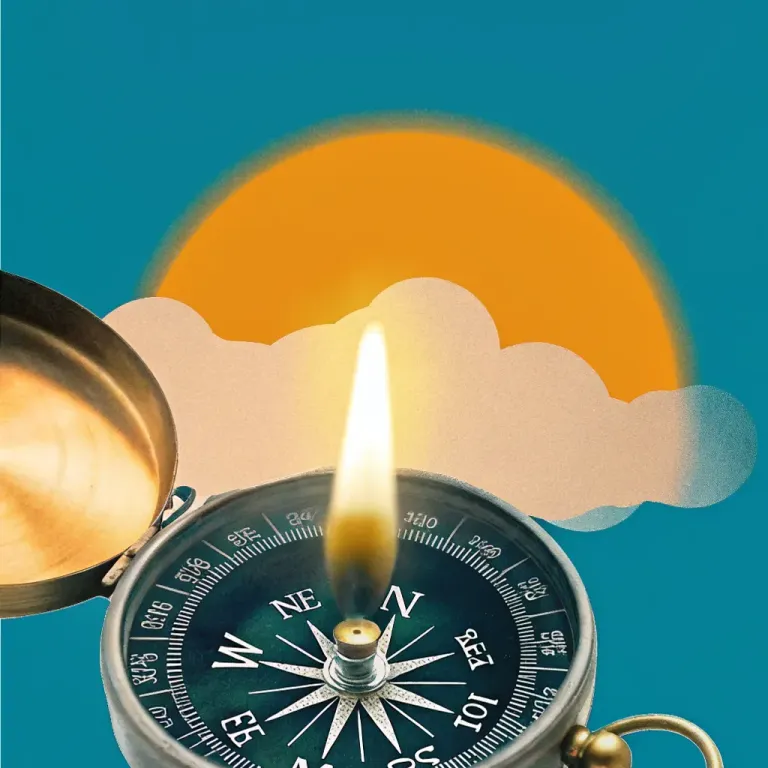
Make Choices That Matter
Podcast by Beta You with Alex and Michelle
The Art of Decision Making
Make Choices That Matter
Part 1
Alex: Hey everyone, welcome back! Today we’re tackling a really fundamental question: how do we decide whether to start something fresh, stick with what we’ve got, or just walk away? These decisions aren’t just theoretical, you know? We're constantly facing them, from career changes to relationships, even those small, daily moments that “really” define us. Michelle: Absolutely, Alex. Decisions, big or small, often feel like standing at a crossroads with no map, wondering if you’re heading towards paradise or a complete dead end. But what if there was a smarter way to approach this? A way to make choices you won't constantly second-guess? Alex: Well, that's exactly what Trey Gowdy goes into in his book, Start, Stay, or Leave. It’s a “really” thought-provoking read. He mixes real-life stories with practical insights from his career in law, politics, and a whole lot more. Gowdy’s main point? It’s all about making choices that actually reflect what you believe in and the kind of impact you want to have. So, the book is less of a set of instructions, and more of a compass for navigating life's tricky moments , right? Michelle: No small task indeed! So today, we’re diving into three key ideas. First, we're looking at how decision-making is “really” the bedrock of everything we do – it's the engine driving our lives, in a sense. Then, we will dig into Gowdy's strategies for actually making those choices whether to jump in, hold tight, or throw in the towel. And finally, we’ll explore how all those decisions, big or small, build up to something bigger: your sense of purpose and the mark you leave behind. It's not just about what you do, but the why behind it too. Alex: Precisely! Gowdy “really” gets into the nitty-gritty of tough calls, not to tell you what to do, but to give you the power to live a life that feels real, determined, and clear. So, let’s get started and explore what it means to “really” live intentionally, shall we?
The Power of Decision-Making
Part 2
Alex: Okay, so let’s dive right in. The core of our conversation is this: decision-making reflects who we are. Gowdy really nails this – it's not just about the choices, right? It's about how those choices reveal our values, priorities, even our aspirations. You know, like that wedding day story he tells? Him being, like, 24, fresh out of law school, and someone predicts he’ll be governor someday. Suddenly, that sets up this massive expectation for his whole life. Michelle: Yeah, and isn't that the classic trap? Someone else plants this vision of success in your head, and suddenly you're scrambling to live up to something you never even signed up for! It's like… being handed a script for a play you didn't even audition for, you know? Look, ambition is great, sure, but how do you even start to balance that with staying true to yourself when those expectations get way too heavy – especially when they aren't even yours to begin with? Alex: Exactly! That’s what Gowdy's getting at, really. He figured out that the key was stepping back and getting clear on his own values. He realized he couldn’t let, you know, societal approval or someone else’s prediction determine his path. And he wants us to ask ourselves: are the choices we’re making – big or small – a reflection of what we truly want, or are they just shaped by outside pressures? Michelle: Okay, Alex, let's unpack that a little bit. Because, honestly, that sounds easier than it is. How do you even know, when you’re in the thick of it, what you really want versus what you’ve been told you should want? That's a seriously blurry line sometimes. Alex: True, and Gowdy doesn’t give us some magic formula or anything. But he does remind us that clarity comes from self-awareness — asking those tough questions. He says that if our choices aren’t authentic, we can turn into "marathon runners with no finish line." Think about that image for a sec. Running endlessly, chasing something undefined, because the goal keeps moving, or it was never even your goal in the first place. Michelle: And honestly, how many of us are doing just that? You know, whether it's a career we're slogging through, or some lifestyle we think we're supposed to have because that's what "success" looks like. It gets so easy to get caught up in a cycle of doing, doing, doing, without asking if it even means anything. So, what stands out to me about his marathon metaphor is sustainability. If your choices aren't coming from something that actually matters to you, they might work for a while, but they're eventually going to burn you out. Alex: Right! Gowdy says misaligned decisions might give us some temporary validation – whether it's society clapping for us, or a bigger paycheck, or whatever. But eventually, that stuff leaves you empty, disconnected from your deeper purpose, you know? So, he gives us a way out of that trap: his "Start, Stay, or Leave" framework. It is so practical. And it breaks down decisions into those three nice, clean categories, each with its own little nuances. Michelle: Okay, so this framework, on paper, sounds… neat. But how can something that simple apply to all of life’s… messy complexities? Let's start with "start." New career, new personal project, you know – these are launching pads, right? But they also come with a huge dose of fear. What's Gowdy’s take on why starting is so important despite the risk of, you know, messing up? Alex: Gowdy sees starting as being about two things: vision and courage. He believes we should always "begin with the end in mind.” It sounds a bit philosophical, maybe, but what he’s saying is, before you even start, picture the legacy you want to leave behind. Gowdy even talks about his own early choices, like being a paperboy or working in a grocery store. Those jobs, on the surface, don't seem that significant. But they taught him these foundational lessons, about relationships, communities, putting in the work, that helped him succeed later as a lawyer and a politician. Michelle: Hmm, so it's like this domino effect. The small starts can lead to something bigger, and it all connects later on, even if you can’t see the whole picture right away. Okay, but let’s flip it. Staying – the second piece – is, I think, harder, especially in our culture that's all about chasing the next new thing. What makes staying the course meaningful, instead of just playing it safe? Alex: That’s where Gowdy’s own life kind of comes in as a metaphor, right? He’s lived in the same house for 25 years. And he uses that as an example of finding value in stability. That house is not just a physical thing; it’s filled with memories, and growth, and meaningful rituals, like planting trees to honor his family. But he’s also careful to say that staying isn’t about resisting change, but about making deeper investments in what truly matters. Michelle: Right, so staying isn’t just about hanging on because you're afraid to move. It's more… intentional. Like standing still in a storm, not because you’re stuck, but because you've chosen to be rooted. That makes sense. But then there’s leaving. That one’s tricky, too. Society tends to equate quitting with failure. What does Gowdy say about reframing that? Alex: He challenges that stigma head on. For him, leaving isn’t about escape, or defeat. It's about freeing yourself to pursue something more aligned with your purpose! Look at his shift from prosecutor to politician, for example. He didn’t leave law because he wasn’t successful, but because that role no longer served the higher calling he was moving toward. And that's the key – that leaving has to be an act of empowerment. You know, not running away from discomfort or fear, but stepping into an environment where you can grow. Michelle: I like that perspective — leaving as a pivot instead of a retreat. But one thread running through all this is how weighty decisions can feel, right? Starting, staying, leaving – there's always that voice in your head asking, "What if this is the wrong choice?" Alex: Yeah! That's why Gowdy focuses on the psychological weight of decisions – it’s not just about picking a path, but understanding that every choice involves trade-offs. Choosing one thing always means letting go of something else. He really wants us to embrace that tension, not let it stop us, but to use it to get clear on what we truly value. Then each decision becomes a building block toward the bigger picture of what you're trying to create.
Practical Frameworks for Choices
Part 3
Alex: And that brings us to a really practical part of Gowdy’s framework—how to actually make those decisions. Because understanding how decisions shape our lives, well, it leads us to these practical frameworks for making those choices. Gowdy doesn’t just leave us floating in the abstract; he actually gives us tools to make these choices tangible and actionable. One of the most impactful tools he introduces is stakeholder analysis. Michelle: Stakeholder analysis, huh? Sounds like something straight out of a corporate strategy meeting. How does that translate to, you know, everyday decision-making? Alex: It's surprisingly universal, actually. The idea is to take a step back and really evaluate who will be affected by your decision—and not just directly, but indirectly—to understand the ripple effects. Gowdy uses his time as a prosecutor to really highlight this point. He shares this pretty emotional example where his courtroom decisions had unforeseen consequences. In one case, you know, he achieved justice by convicting someone guilty of a violent crime. But that conviction left the accused’s young child practically orphaned. So, it wasn’t just the perpetrator who paid a price—it was also this innocent child who bore the fallout. Michelle: So, it’s like tossing a rock into a pond and watching all the ripples spread. Every choice impacts more than just the person tossing the rock. That’s heavy, though. I mean, does Gowdy really expect us to map out every single ripple before making a decision? Alex: Not exactly every ripple, right, but the big ones. He asks us to think critically about three questions: Who is directly or indirectly impacted by my decision? What are the potential risks and rewards for those involved? And, do these impacts align with my principles? It’s a way of pausing, you know, to evaluate the human cost of decisions. Think of it as a moral checkpoint—ensuring your choices honor your values while also considering the people around you. Michelle: Okay, so, if I’m tracking this correctly, stakeholder analysis is like that pause button, right? A moment to think beyond “What does this mean for me?” and instead ask, “What does this mean for us?” It’s an interesting mix of pragmatism and morality. But doesn’t this get overwhelming? Every choice, big or small, could affect someone else in some way. How do you keep that from paralyzing you? Alex: Gowdy doesn’t suggest overthinking every little decision—that would be exhausting! He’s really talking about big, value-altering moments where there’s a clear domino effect. For example, you know, shifting careers, uprooting your family, or even making financial moves with long-term implications. By weighing those consequences upfront, you really save yourself from unintended harm later. Michelle: Hmm, so it’s like investment planning—but for your relationships and integrity. Makes sense. Let’s tackle another framework that Gowdy introduces: visualizing the end goal. I imagine that connects closely to this idea of intentionality, but shouldn’t we be focused on the immediate here-and-now instead of speculating about the future? Alex: Well, good question, Michelle, but Gowdy argues that it’s not about ignoring the present—it’s about aligning your present steps with where you ultimately want to land. He calls it “beginning with the end in mind.” Think about this: If you want a life of meaning, fulfillment, and impact, doesn’t it make sense to have a guiding star to keep you on track? Gowdy drives this home through his own story, you know, when he was swept into external visions of success, like the pastor at his wedding predicting he’d be governor one day. That was someone else’s projection, not necessarily his. It wasn’t until Gowdy defined his own destination that, you know, things started to click. Michelle: And how does that work in practice? “Picture the life you want” is great advice, but what’s the mechanism? What does Gowdy recommend for someone struggling to visualize anything concrete? Alex: He gives us specific prompts. Imagine yourself at key milestones—when you retire, or even farther ahead, at the end of life. Ask: What would make me proud when I look back? What legacy do I want to leave behind? Will this decision bring me closer to that vision? The point isn’t to detail every step, but to ensure that each move aligns with the broader vision, preventing you from wandering off track because of, you know, short-term distractions. Michelle: I see the value in that. It’s almost like reverse-engineering your life. If your goal is to climb Mount Everest, you can map the training, equipment, and checkpoints backward from the summit. But Gowdy also emphasizes balancing logic with emotions. How does that dynamic fit into all of this? Alex: That’s such a crucial part of his framework. Gowdy says decisions often go wrong when we rely too heavily on either emotion or reason alone. Emotions tell us what we care about—they’re, you know, our compass. But they can also be impulsive, leading us into decisions we regret. Logic, on the other hand, brings structure and clarity but can strip away human nuance if applied too rigidly. He uses his career shift from prosecution to politics as a powerful example. Emotionally, he was invested in delivering justice, but the burnout and personal sacrifices made him reevaluate logically: Was this role sustainable for his goals and well-being? Combining both perspectives led to a much more meaningful pivot rather than a reactive or forced move. Michelle: Got it: don’t be Spock, but don’t be overly sentimental either. It’s about blending the heart’s pull with the head’s calculations. But applying that blend must still get tough, especially in high-stakes decisions. What practical advice does he give to actually strike that balance? Alex: He suggests three steps: pause and reflect on your emotions without rushing; question your logic by examining if it’s based on valid assumptions or, you know, more external pressures; and then weigh both short-term outcomes and long-term aspirations in tandem. This triad creates a holistic view of your decision, balancing immediacy with foresight. Michelle: Holistic—nice word choice, Alex. It’s like preloading your own internal GPS with emotional and logical coordinates, ensuring you don’t end up in a ditch somewhere. But let me ask you this: how does someone build these tools into their daily lives beyond big forks-in-the-road moments? Alex: That’s where Gowdy zooms out with his final message about establishing personal decision-making frameworks. He encourages exercises like pro-and-con lists, breaking choices into smaller parts, consulting trustworthy confidants, and visualizing both the risks and your resilience in facing them. All these tools aren’t magic—they require practice. But over time, they give you clarity and confidence in repeating the process. Michelle: So, put it all together and we’re looking at layered intentionality: stakeholder awareness, end-goal visualization, emotion-logic harmony, and step-by-step personalization. That’s not just decision-making. That’s building an internal architecture to navigate life’s complexities.
Legacy and Purpose
Part 4
Alex: So, with those frameworks in place, the conversation naturally flows into how these choices affect our personal and professional lives. And that leads us to legacy and purpose. It encourages us to look at the broader implications of our decisions, focusing on personal growth and how we impact society. Michelle, what’s the first thing that pops into your head when you hear "legacy"? Michelle: You know, I immediately think of statues, plaques, or maybe some building with my name plastered on it – the whole "look at what I built" kind of vibe. Pretty typical, right? But I bet Gowdy’s take on legacy is more than just cementing your name in history. Alex: Exactly. Gowdy totally flips the script on the traditional idea of legacy. For him, it’s not about grand, external achievements but the quieter, more personal ways we touch other people’s lives. It’s not about what’s carved in stone but what's etched in hearts. He talks about shifting from needing external validation to finding inner fulfillment, showing us that success based on your core values leaves a more lasting and profound impact. Michelle: Okay, I’m listening. But let me play devil’s advocate here. If legacy is about inner fulfillment and small gestures, where does ambition fit in? I mean, external markers like career achievements still signal success, don’t they? Can these two ideas even coexist? Alex: Absolutely, Michelle. Gowdy doesn't dismiss ambition at all. He just reframes it. He challenges us to ask, “What’s truly driving my ambition?” Is it coming from a place of alignment with your core values, or is it about proving something to other people? He gives a great example from his own life: leaving his career as a prosecutor—where he was super successful—because the emotional cost was just too high. From the outside, you might think, “Why walk away from all that?” But for Gowdy, walking away wasn’t giving up on ambition; it was redirecting it, redefining what success meant to him. Michelle: Redirection—that's interesting. So, his switch from prosecution to politics wasn’t really about losing ambition but about realigning it with his evolving sense of purpose. But how do we even know if our legacy-building efforts, or even our ambitions, are out of sync? Alex: Gowdy suggests constant self-reflection. He wants us to constantly question our own values. Like, instead of just chasing a promotion or blindly climbing the corporate ladder, he advises us to look inward, asking, "What do I really value?" and "What kind of impact do I want to have?" Those questions shift the focus from getting external approval to finding internal fulfillment. Gowdy’s story is a perfect example. Quitting prosecution might’ve seemed like a professional “step down,” but it was actually a crucial moment in crafting a more aligned personal legacy. Michelle: Right, I get where you’re going. But speaking of leaving a mark on others, does Gowdy get into how this impacts more than just your own personal growth? I mean, legacy isn't just a solo thing, is it? Alex: Exactly, Michelle. That's where he brings in the importance of kindness, empathy, and connection. Gowdy sees legacy as primarily about how we affect other people’s lives. He shares moments from his time as a prosecutor where he realized his job wasn’t just to get verdicts but to uphold dignity for victims and their families. There's one story in which he interacts with a family grieving the tragic loss of a loved one, and it really stands out. Gowdy knew the courtroom couldn't bring back what they'd lost, but by treating them with respect and understanding, he honored their humanity. Those moments of kindness became part of what his legacy is about. Michelle: That’s “really” profound, Alex. It sounds like the legacy he’s talking about isn’t about big, flashy moments but about consistent, authentic interactions. The idea that it's not grand gestures but small, meaningful connections with others that truly matter feels “really” refreshing. But, how does Gowdy think we can cultivate this kind of purpose-driven legacy in our day-to-day lives? Alex: He gives two “really” powerful insights. First, prioritize relationships. He emphasizes the importance of meaningful connections—whether it’s with family, mentors, or friends—and he even references "Nathans” from the Bible. Nathans are those “really” trusted confidants who keep us honest. Gowdy says they're crucial for helping us navigate tough choices and stay true to our values. Michelle: So, it's like having your own personal board of directors, but instead of stockholders, you’ve got truth-tellers. I like that. But what about your broader community? How does Gowdy suggest we expand this idea of legacy-building to impact more than just the people closest to us? Alex: That’s the second insight—get involved in the community. Gowdy highlights how small acts of service can create a ripple effect, building a sense of shared purpose. He argues that mentoring, volunteering, or just being present in your community not only enriches the lives of other people but also reinforces your own sense of purpose. It's a two-way street: the more you give, the more meaning you find in your own life. Michelle: Yeah, that’s a great way of putting it. Community engagement doesn’t have to be huge. It’s often the small, consistent things that make the biggest difference. Okay, final question: how does Gowdy suggest we balance our personal ambitions with this broader focus on relationships and community? Are they ever in conflict? Alex: It’s definitely a balancing act. Gowdy believes that success and legacy should go hand in hand. He says the key is to integrate your personal values with your contributions to society. Simply put, it’s not about choosing one over the other—it’s about making sure your ambitions are authentic and have a positive impact on other people. If you do that, every choice you make becomes part of a complete legacy. Michelle: So, it’s not about being a lone wolf climbing a mountain. It’s more like being part of a team laying down stepping stones for others while also moving forward yourself. That’s a legacy worth building.
Conclusion
Part 5
Alex: Okay, so to sum it all up, Trey Gowdy’s Start, Stay, or Leave really gives us a solid framework for tackling those big life decisions, right? Whether it’s diving into something new, sticking with what really matters, or having the guts to walk away, it’s not just about the action itself. It's about reflecting who we are and, you know, the kind of mark we want to leave. Michelle: Exactly. And Gowdy's not just throwing around high-level concepts, is he? He actually gives us some real, workable tools. Things like stakeholder analysis, trying to balance how we feel with what makes sense, and really picturing where we want to end up. It can help us make decisions that are both clear and meaningful, wouldn't you say? Alex: Absolutely. I think, ultimately, the book is trying to nudge people. It's a call to live more deliberately, making sure that what we do lines up with what we believe and actually adds something positive to our lives and the lives of people around us. Michelle: Makes you think, doesn't it? So, here’s a question for everyone listening. The next time you're staring down a tough choice, instead of just scratching your head and wondering, "What “should” I do?", maybe try asking yourself, "What does this say about the kind of person I'm trying to become?" Alex: I think that's the key, Michelle. Because when it's all said and done, every beginning, every commitment, and every brave exit shapes not just where you're going, but why you're even on the journey in the first place.

